Cats are enigmatic beings, and many times, we have a hard time figuring out what their behavior means. It seems that, unlike other pets, such as dogs, cats can sometimes act in an unpredictable and inexplicable way. However, our furry friends can also learn to behave if we train and teach them how to do so. But that has to happen at an early age. Once our cats have already acquired upsetting behaviors, such as biting your feet, we may feel concerned since we don’t know how to handle the issue. But this problem has several causes and there are ways to fix it.
So today, we wants to talk about cat psychology. We looked for tips from experts online and made a compilation of reasons and possible solutions to an issue that’s actually pretty common, as cat lovers might know. Read on to learn how you can prevent your cat from biting your feet.
1. Boredom
One of the main reasons your cat bites your feet or your legs is boredom. The hunting instinct that is innate to all felines makes them naturally want to catch everything that they see on the move. And if your cat spends a lot of time alone or you don’t pay enough attention to them, it’s very likely that they will try to chase you. That’s because playing is a way of stimulating their hunting instinct. If your cat has to develop his hunting instinct on their own, your feet or ankles are the perfect prey to chase since they’re accessible and are always on the move. In this way, the cat will have fun trying to catch you, and at the same time, they’ll make sure you pay attention to their needs.
To prevent this from happening, we recommend that you play with your cat often, and if you can’t, offer them safe toys that can help keep them stay entertained throughout the day. You can change out their toys as much as is necessary.
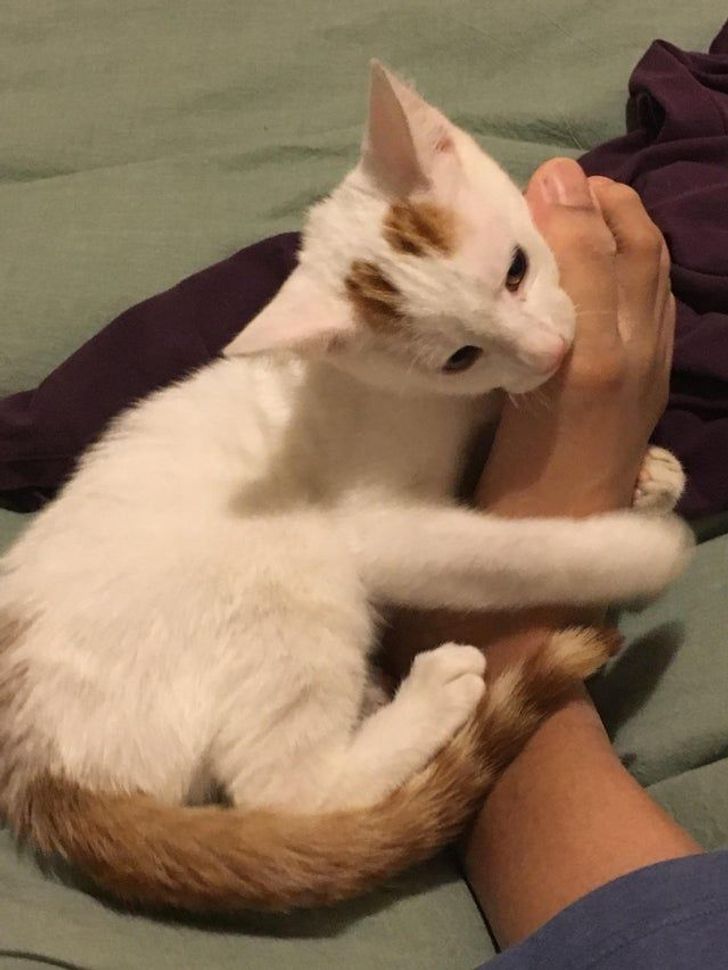
2. Overexcitement or excitement in general
Pets often don’t know how to manage their excess energy and excitement. This is likely the reason behind your cat swooping down to bite your feet or legs when something happens that makes them very happy. Think about the times your cat bites your feet. These are probably times when you’re playing with them or offering them a special treat that they really like.
Although the cause of this problem is not necessarily bad, it’s very important that you teach your cat that hurting you is not a good thing. To correct this behavior, you can use positive reinforcement. When your cat bites your feet for excitement, stop what you’re doing, whether it’s feeding or playing with them. Then help the cat calm down, and when they’re calm, reward them by playing again or giving them a treat.
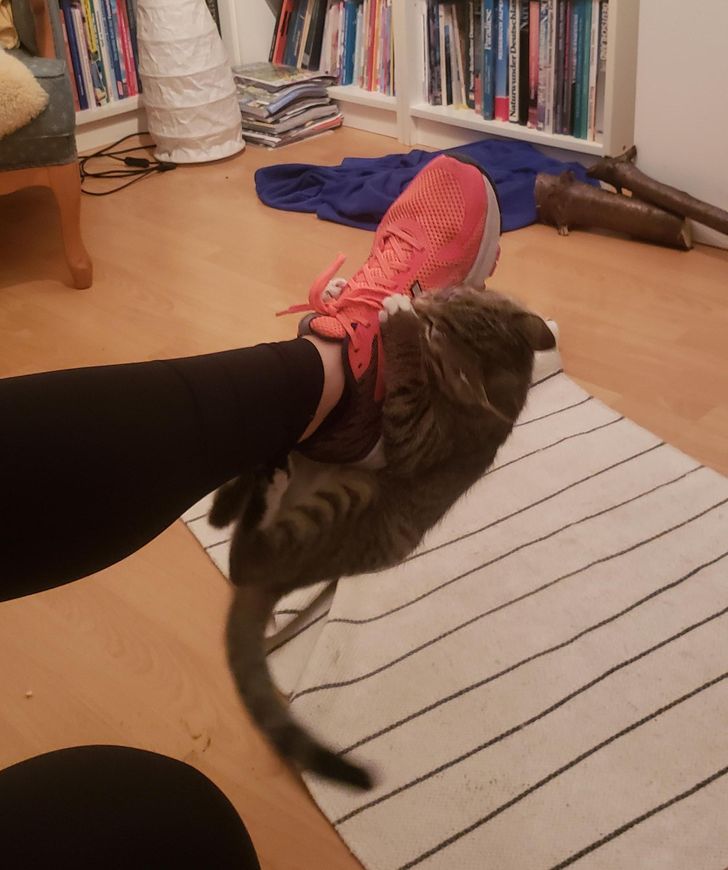
3. Malaise
If your cat bites your feet when you’re both sleeping or resting, it’s recommended that you check your cat’s health. Make sure that your cat has no injuries or doesn’t feel sick. When cats are uncomfortable or sick, they seek your attention. They’re trying to warn you they need your help, and one of the many ways they do this is by biting your feet.
If your cat isn’t sick, their discomfort could come from having been moved from a place or position where it was comfortable or safe to one where they don’t feel comfortable. Then they’ll react to this with discomfort because they perceive it as a possible threat.
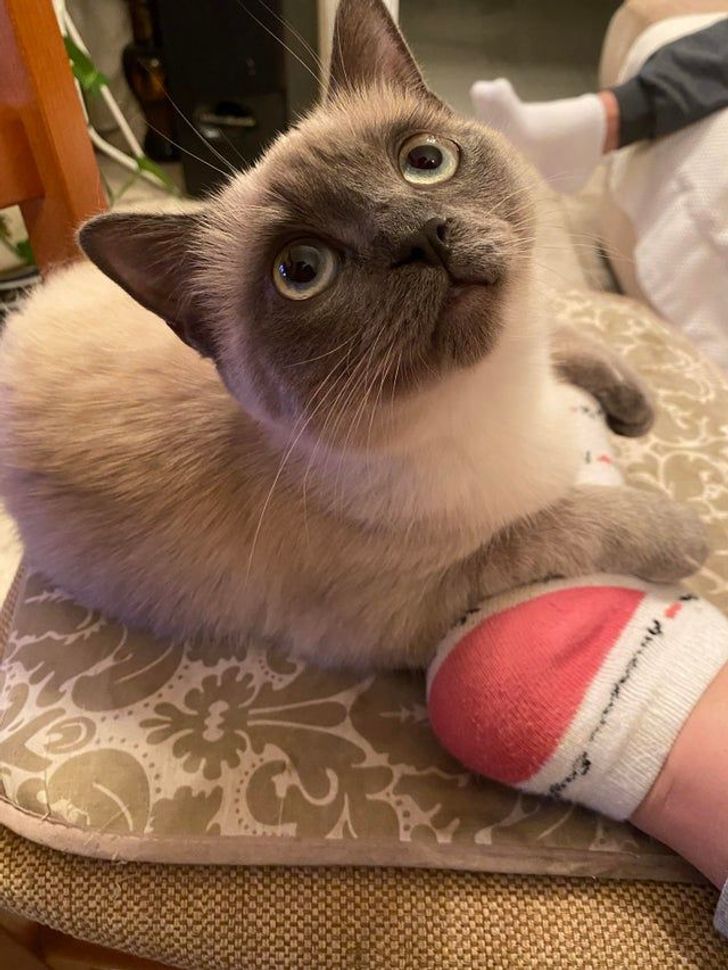
4. Aggressive behavior
Some cats bite your feet or ankles simply because they’re aggressive. This may be due to socialization problems that they’ve had ever since they were kittens or an environment that generates stress for them. If your cat is in one of these situations, they could attack you as a form of self-defense.
If you find yourself in a situation where your cat is biting your feet due to stress, we recommend that you contact a veterinarian or a feline ethologist as soon as possible. They’ll be able to give you advice and help you identify the specific source of your cat’s aggression. That way, both your cat and the people that share space with it will be able to cope with this issue more effectively. If your cat is very aggressive or their bites cause serious injuries, you should also seek medical attention for yourself as soon as you’ve been bitten.

Possible solutions
So far, we’ve only talked about what the causes for a cat to bite your feet could be. However, in case the problem you’re dealing with doesn’t require the assistance of a specialist, we’d like to give you some tips on how to solve this situation on your own.
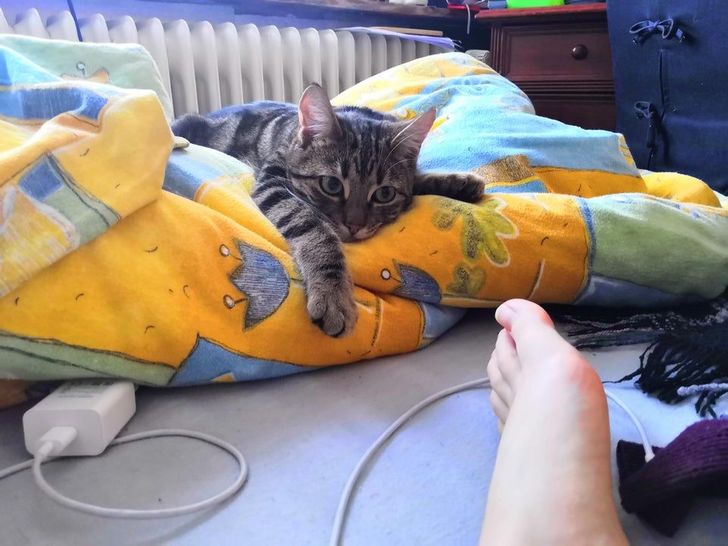
Opportunities for play and predatory behavior: Provide your cat with enough toys, towers, high shelves, and hiding places that allow them to explore your house and be kept entertained while you’re away. Keep in mind that the toys and objects you choose should be appropriate and safe for your cat.
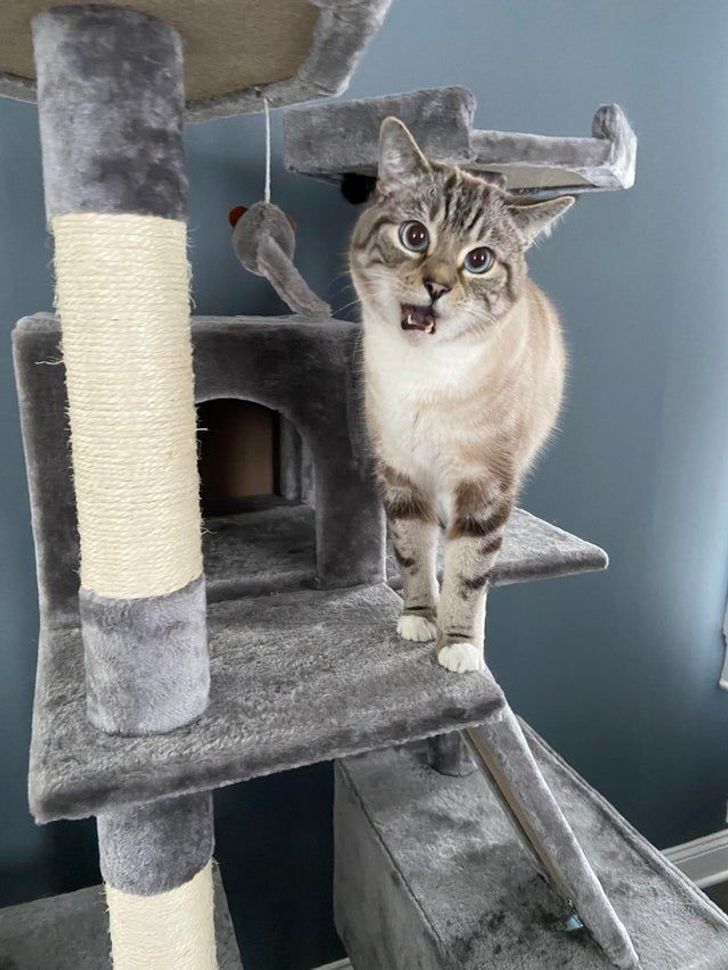
Positive, consistent, and predictable human-cat interaction: Block out some time in your agenda to spend time with your cat. If possible, this should always be at the same time of the day. You can pet your cat and play with them — or if they enjoy exploring the surrounding areas, you can go for a walk together.
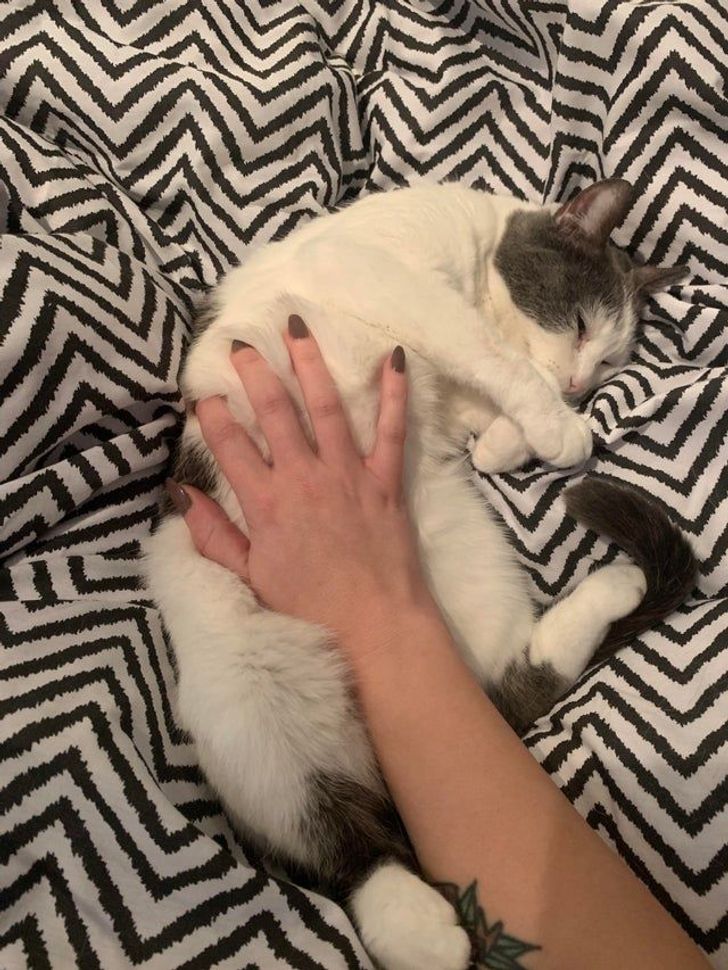
Get your cat a buddy to play with: If your cat spends a lot of time alone, a solution you might want to consider is adopting a new kitten so that they can keep each other company. Before you make this decision, make sure your cat has a sociable character and that they like spending time with other felines. Also, bear in mind that adopting a new pet is a big responsibility.

Pay a visit to the vet: There are certain conditions or diseases that trigger aggressive reactions in cats. That’s why it’s always important to visit the vet at least twice a year to make sure your cat is in good health and in good general physical condition.
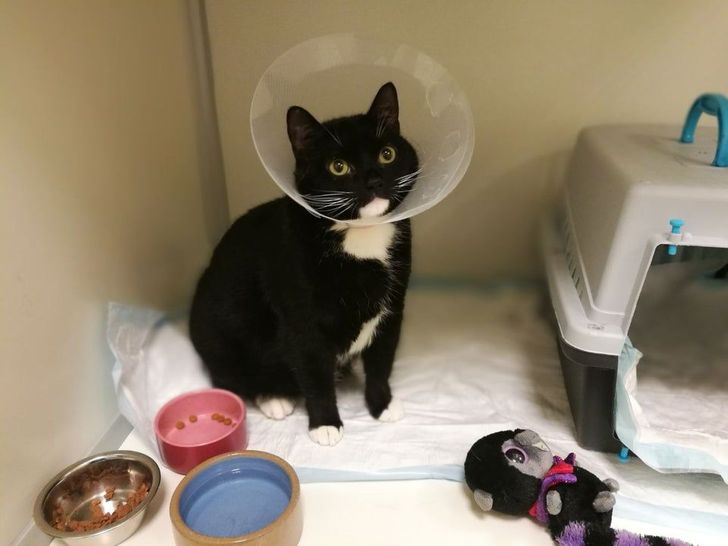
After having read the possible causes for your cat biting your feet and the proposed solutions, do you have any advice that has worked for you and your cat? How did you cope with this problem?

